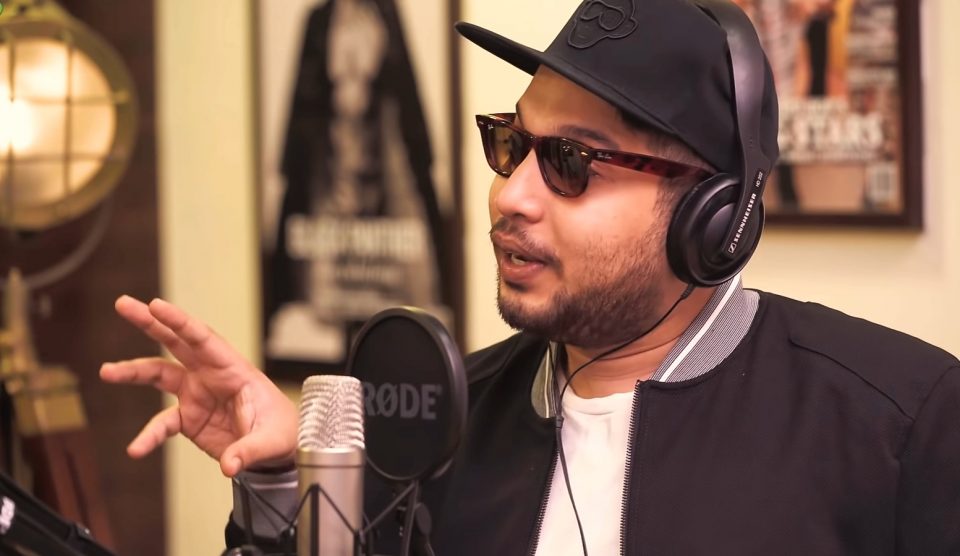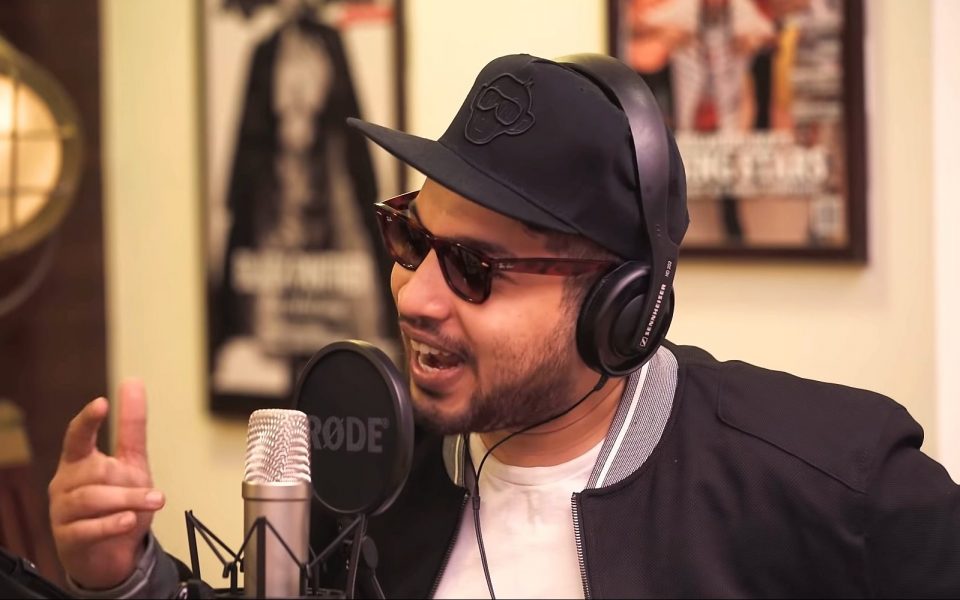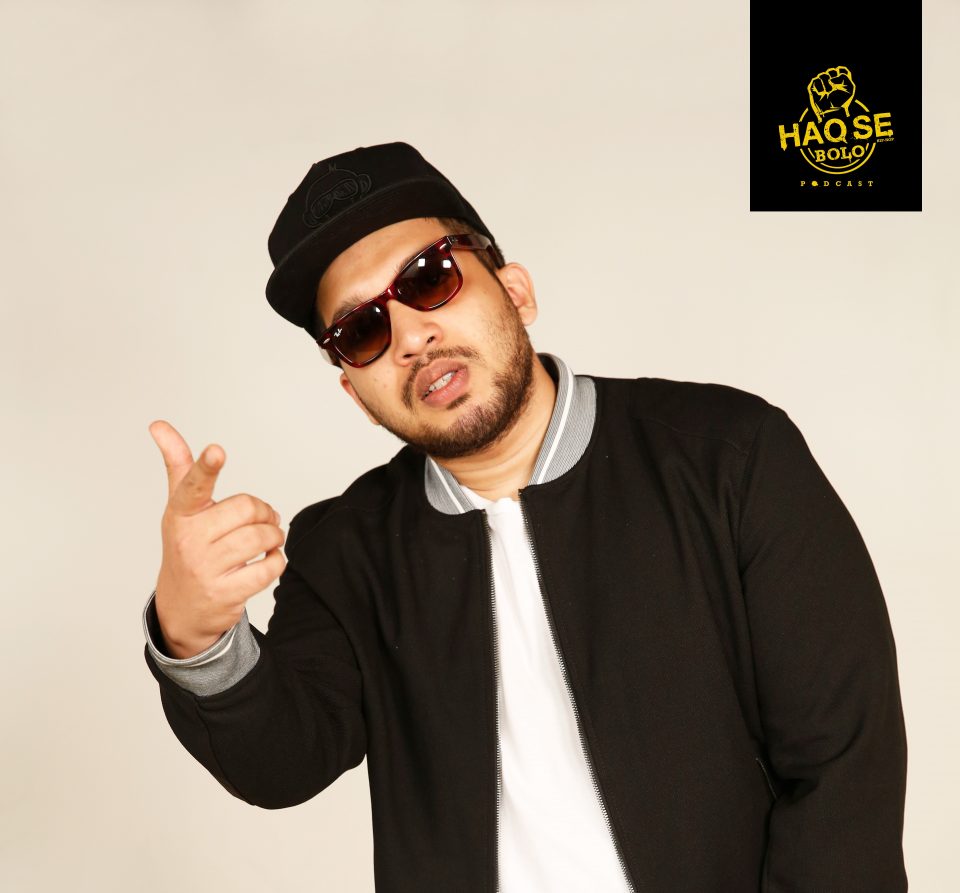7 Truth Bombs Dropped by Naezy on the First Episode of #HaqSeBolo
The breakout Mumbai rapper got real about gully rap, artistic responsibility, hip-hop as a trend and more
Rapper Naezy recently featured on Rolling Stone India and digital media firm Qyuki’s audio and video podcast series #HaqSeBolo, a vertical of #HaqSeHipHop, where he spoke of the issues still left to be addressed in Indian hip-hop, the community effort behind the genre’s popularity and the things to keep in mind as the scene continues to grow in the country. Here are some of the truth bombs he dropped:
1. Hip-hop slang is cool but its subjects aren’t
Naezy spoke of how words and phrases such as “Bantai,” “Gully,” “Bahut hard,” etc. have become widely used but the realities behind the words are still not engaged with. He emphasized how gully rap cannot just be a movement for likes and shares on social media, but a grassroots movement for social change. “Peeche bantai log ke saath kya chal raha hai, woh wakiye kisi ko padi nahi hai. Sahi se ration-paani nahi hai, chhat tapak rahi hai baarish mein, garmi mein chhat tap rahi hai, har season mein ek nayi pareshaani hai (Nobody cares about what’s happening to the bantais. There’s no proper food or water, the roof leaks, the houses are heated in the summer, every season brings a new trouble,)” he said. Neazy wants listeners to give a damn when they hear his lyrics.
2. Breakout hip-hop stars needs to realise their artistic responsibility

The way Naezy sees it is that when you get famous, you get responsible. “Jo mera pehla geet tha, ‘Aafat,’ usmein main ne bahut bindaas government ke baare mein baat ki thi. Aaj main nahi kar sakta hoon, aaj mujhe sochna padta hai (I was critical of the government in my first song ‘Aafat.’ Today, I can’t be as critical without first thinking it through.)” As all eyes turn to hip-hop artists, the freedom with which they used to rap gets curbed by a bit but as their lyrics have large scale resonance and implications, Naezy believes they must take the weight of their words seriously.
3. Why ‘asli’ hip-hop is a good trend

Naezy thinks that he’s fulfilled his responsibility through his lyrics when people strive to be original in their approach towards hip-hop. Nowadays, ‘asli’ or authentic hip-hop is the trend on the rise and he appreciates what it means for the scene. “Agar yeah trend banta hai ki mujhe uss gully ke bantai ke liye kuch karna hai, ya mujhe apne desh ke liye kuch karna hai, apne youth ke liye kuch karna hai, mujhe low-key ya OG way mein karna hai, toh mujhe lagta hai ki main bahut safal hoon likhne mein (If the trend is to help a brother from the streets, to do something for the nation and its youth or to do something in the low-key or OG way, I think my lyrics have achieved success,)” he says.
4. It’s important to have a writing environment for hip-hop

Naezy views a writing environment as intrinsic to hip-hop because it acts as a building ground to preserve the history and culture of the country, especially the influence of the writers and poets, while also nurturing the creativity of budding lyricists and performers. He spoke of the nuances and beauty of Indian dialects and how they can find their way into hip-hop when young kids don’t just filter hip-hop through the western lens. “Jo humaara riwaaz, tehzeeb, adab kehta ya demand karta hai, woh humein khudki add karna chahiye (We should add our own traditions, etiquette and gestures to our version of hip-hop,)” he says.
5. The little things will matter later

Naezy recounted how the little things from his past added up to shape who he is today while talking about how Divine too guided him along the journey. He spoke of how their scooter rides around the city, networking and the tracks they dropped without thinking much of them soon enough added up. “Aaj yeh sab cheezein mere liye bahut mayiney rakhti hai (Today, those little things mean everything to me,)” he reflected.
6. Hip-hop’s language barrier in India is broken

“Hip-hop mein badlaav aane ki shuruwaad bhasha se hui (Indian hip-hop started to change when people started rapping in the myriad Indian languages,)” said Naezy. He spoke of how Kannada rap, Tamil rap, Gully rap and more opened the gates for more identities to voice their experiences, thereby making hip-hop a relatable movement in the country as more and more people engage with the genre in the language they speak and understand. The genre owes its popularity to this diversity of languages in India.
7. Hip-hop has no boundaries

Naezy thinks Indian hip-hop should be spread throughout the country but also make its message universal. Indian hip-hop should not just be synonymous with gully rap. “Hip-hop ki toh koi seema hi nahi hain (Hip-hop has no boundaries,)” he said.
Watch the first episode of #HaqSeBolo featuring Naezy below:




